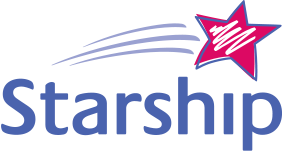Pāpā to Pāpā
“That was one of the happiest times when we found out we were having a child”.
Richard Ranginui Mitai and his wife Shelley were young when they found out they were going to be parents but youth proved no barrier – it has been one of their greatest joys.
While the marae was a fundamental part of life in the Mitai household, youngest son Ricky Lee Mitai didn’t enjoy the marae or people generally. Yet, over time Ricky’s whanaungatanga with others grew and the marae is now integral in his life.
The marae taught critical life skills for the Mitai whānau. A strong work ethic is fundamental and expressed in butchering, fishing and wharekai management, but Richard says safety was also paramount and “the kids learnt on the job”.
“One of the biggest things growing up in Ōpōtiki was our environment, and we’re surrounded by water.”
As a child Richard was never directly taught water safety. However, as a parent his perspective has shifted to recognising safety for his tamariki can be conveyed with culture.
Richard said “Being a parent everything changed and all kids need to learn how to swim.”
So it is that the Mitai children were taught about te kawa o te awa - safety around water and in particular respect for the awa’s life force. They were taught to appreciate the water and have a karakia before going to places they’d never dived or swum in before.
Once the children learnt to swim, they learnt to dive and their confidence grew to compete against each other and their whanaunga. Richard says he never felt his kids were at risk because he knew they knew how to be safe around water and around the sea.
Richard shared that these skills were not stand alone lessons, they were inherent and normal life skills that he taught his tamariki. And which his son Ricky Lee can now impart to his son Wharekaahu.
Kapa Haka encompasses core values of waiata, aroha and te reo Māori, says Richard.
The Mitai whānau were deeply involved in Kapa Haka. Performing as a whānau was a dream shared by both Richard and Shelley and they achieved that at the 2006 Mataatua Kapa Haka Regionals in Te Teko. This was followed by performing at the 2011 Te Matatini National Kapa Haka festival.
Kapa Haka provided a safe and supportive place for the Mitai tamariki to connect with the wider whānau and their culture.
Ricky Lee says Kapa Haka allows tamariki to practice and enjoy their culture, whanaungatanga which in turn cultivates an appetite for their culture, history, and language.
When Ricky Lee had his firstborn son, Wharekaahu (Whare), he says the ‘sky opened up’ and his outlook on life changed completely. “There really is nothing that can compare to the love I have for my son and my wahine” he says.
Ricky Lee is raising his son away from his whānau in the city and while this makes it hard to stay connected he relies heavily on social media to keep up the whanaungatanga.
Raising his whānau in the city also means that there are new precautions he must consider.
When Ricky Lee asked his pāpā for advice on raising his son, Richard responded with “Believe in God, and God will keep you and your whānau safe. Love your whānau every day and night through whanaungatanga. Share your knowledge with Whare, teach him well and let him lead the way.”
Ricky ended the kōrero with a whakataukī which reinforces the significance of connection, the strength that connection brings and resilience through that connection.
Ki te kapuia te kākaho, e kore e whati. Waihoki ki te noho tōpū te iwi, korekore rawa e taea noaihotia te āpiti mai, Ko te whare tū ki te wāo, he kai nā te toki, ko te whare tū ki te pā tūwatawata e kore e hinga.
If the toetoe stems are bound together, they will never break. If the tribe were to unite, there is no way anyone could attack it. The whare that stands alone is easy prey to the axe, but the whare that stands within a fortified stockade will not perish.
Aroha and whanaungatanga and the way we nurture and develop our tamariki are fundamental instruments for a tamaiti to be supported, safe and resilient in this world.
Water safety- what you need to know
- Stay within sight and reach of your child when in, on and around water.
- Only let young children in, on and around water when you are free to actively supervise them at all times, without any distractions.
- Learn more about water safety at starship.org.nz/safekids/drowning-3-4-years.
For more information about kaupapa Māori water safety education check out Kia Maanu Kia Ora.
Need to talk?
Call or text 1737 any time for support from a trained counsellor
Call PlunketLine 24/7 on 0800 933 922
Depression helpline: Freephone 0800 111 757
Healthline: 0800 611 116 (available 24 hours, 7 days a week and free to callers throughout New Zealand, including from a mobile phone)
Lifeline 0800 543 354
Samaritans – 0800 726 666
